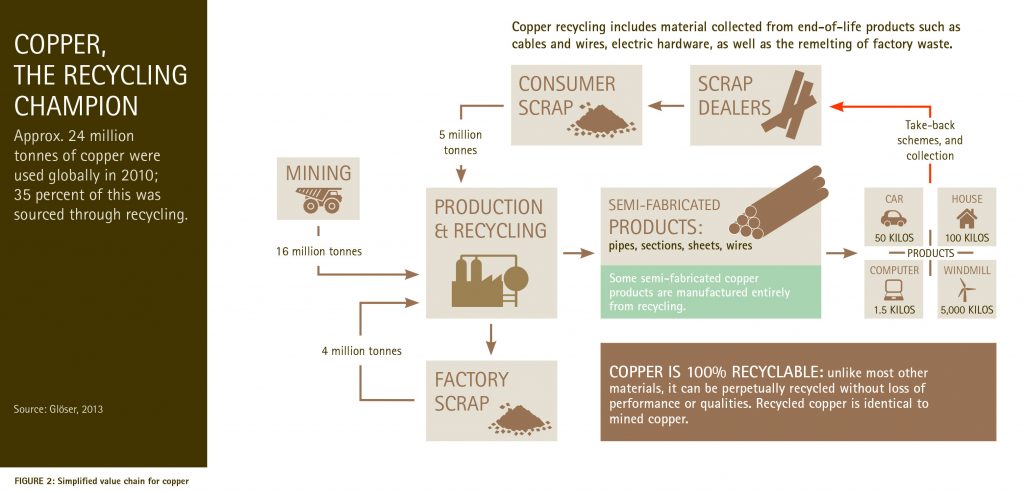Copper Insight
The transition to wind, solar, and EV (electric vehicles) is anticipated to further increase the demand for copper. Since 1900, copper consumption has increased by a strong 3.4% per year and the current trend is expected to strengthen because of growing consumption of base, green energy and battery metals, of which copper is all three. Because Copper is infinitely recyclable and considered to be the bedrock of an industrial society and copper will play an increasingly prominent role in this respect as the world transitions to clean and renewable energy in addition to continuous infrastructure upgrades and expansion in developed and developing economies. Currently almost 50% of global copper consumption comes from recyclables.

History of Copper
Copper has been in use for at least 10,000 years, but more than 95% of all copper ever mined and smelted has been extracted since 1900 and more than half was extracted the last 24 years.
Like aluminum, copper is recyclable without any loss of quality, both from raw state and from manufactured products. In volume, copper is the third most recycled metal after iron and aluminum. An estimated 80% of all copper ever mined is still in use today.
Despite competition from other materials, copper remains the preferred electrical conductor in nearly all categories of electrical wiring except overhead electric power transmission where aluminum is often preferred.
The transition to wind, solar, and EV (electric vehicles) is anticipated to further increase the demand for copper. Since 1900, copper consumption has increased by a strong 3.4% per year and the current trend is expected to strengthen because of growing consumption of base, green energy and battery metals, of which copper is all three.
Additionally, Copper is widely recognized for its antimicrobial properties. Copper and its alloys are natural anti-microbial materials. Ancient civilizations exploited the antimicrobial properties of copper long before the concept of microbes became understood in the nineteenth century. Another reason why coppers intrinsic value to our society has never been more apparent.
